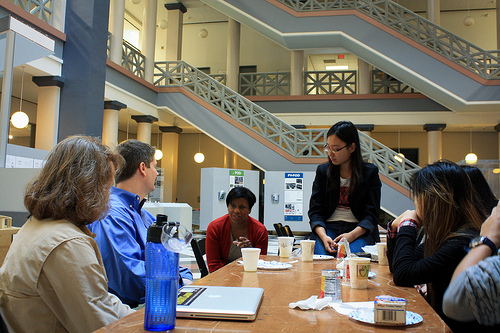Most web applications are fundamentally egocentric. YouTube only associates videos with the account that uploads it. WordPress and Drupal only let you acknowledge one author of a blog post unless you install third-party plugins. Github automatically credits anyone who contributes code but doesn’t easily acknowledge people who contribute ideas. Creative Commons licenses require you to attribute the person who uploaded a project, not always the people who created it. Only a few sites, like Vimeo and Mozilla Open News, permit users to acknowledge the people and organisations involved in a project.
Discussions about acknowledgment often focus on the idea of authors and the credit they deserve. Content curator Maria Popova recently proposed the Curator’s Code for Twitter attribution, arguing that we need to respect curation as “a form of authorship.” While Maria is right that we should acknowledge curators, this idea of authorship is narrowly concerned with self interest rather than the beauty and fun of creative cooperation. As a result, most people see acknowledgement as a duty– especially if they feel they’re not being properly acknowledged. That’s boring. The best acknowledgment is a party, a celebration of collective identity and creativity.
